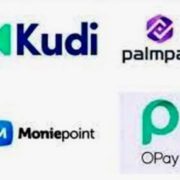How to check the legitimacy of a company you work with to avoid risky business relationships
Approximately 2-5% of the world’s GDP is laundered every year, which amounts to approximately $800 billion to $2 trillion, according to research by the United Nations. As a business, every time you establish a relationship with another business, you are opening your company up to the risk of criminals using your organisation for this kind of criminal activity.
Similar to Know Your Customer (KYC) procedures, knowing the organisations you are dealing with limits the risk of non-delivery, non-payment, exposure to fraudulent activities and failed deals. The only difference between KYC and know your business (KYB) is that the former is used to verify the identity of consumers or customers in compliance with legal requirements, while the latter is for identifying companies and suppliers in business to business (B2B) relationships.
RELATED Setting Standard Operating Procedure To Increase Efficiency For Your Business
Sameer Kumandan, Managing Director of South Africa’s largest data aggregation platform SearchWorks, says that to properly vet a business you need to make sure it is a legitimate company, verify the details of the directors and the place of business, ensure the company is not and was not involved in any fraudulent activities, and assess the nature of its business to ensure it is aligned to what you are sourcing from it. Always insist on a face-to-face meeting when vetting new businesses, whether it be in person or via Zoom or a similar platform. A meeting will allow you the opportunity to visually match up what you see and what has been provided. Site visits are also a good way of ensuring validity (if possible and depending on lockdown restrictions).
“If KYB is not done correctly, you run the risk of being involved with fraudulent companies or companies involved in other tax crimes or illegal activities.”
Beyond the obvious manual searches, which could include checking a company’s address on Google Maps, confirming a website exists and calling the listed telephone numbers, there are several in-depth searches that can be conducted to verify that a company is legitimate.
This is where an innovative, web-based platform like SearchWorks can be of help, as it gives access to 160 different search types and provides the user with a report with the results in real-time.
“Ordinarily, you would need to go to various organisations individually and ask for consent every time in order to vet a new business contact, but with SearchWorks, this can all be done on one platform,” states Kumandan. SearchWorks is aligned with the National Credit Regulator and the credit bureaus to ensure that searches are performed within the confines of the law and the governing bodies of the associated organisations.
SearchWorks can help with:
- CIPC reports. Conduct verifications of the company and its directors via the Companies and Intellectual Property Commission (CIPC). By doing this you can confirm that the company exists, the nature of its business, verify the identity of the directors and ensure they are still active in the business, and check its registered physical addresses and its registration status.
- Business reports. Perform a company profile check to get an overall summary of the business, assess its current financial performance and business credit score.
- Account verifications. Confirm that the bank account details provided by the suppliers are accurate and are that of the company. You need copies of bank statements, ID documents and proof of address.
- Credit reports. This is applicable when you extend a line of credit to ensure that the companies you are about to enter into agreements with are credit worthy.
“KYB checks are vital to help lower the risk of your business being used as a vehicle for criminal activities, so make sure they are always up to date,” advises Kumandan.































